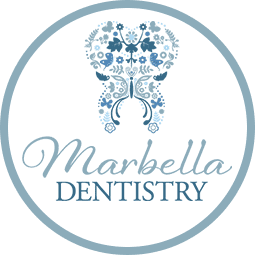Chronic headache and throbbing pain in the jaw can be a sign that you may be suffering from a temporomandibular disorder or commonly known as TMD. This condition usually affects an individual’s day-to-day life, which causes them to have sleepless nights and lots of discomforts.
The temporomandibular joint (TMJ) is located in front of each ear that acts as a hinge, connecting the jaw to the temporal bones of the skull. These joints are responsible for a person to move the jaws, talk, chew and yawn without any discomfort.

To avoid confusion between TMJ and TMD, as well as help you understand this particular condition further, here is a list of some frequently asked questions and their corresponding answers we at Marbella Dentistry prepared.
What is the difference between TMJ and TMD?
TMJ stands for the temporomandibular joints that act as hinges which allows the movement of your jaw. On the other hand, TMD is an acronym for temporomandibular disorder, which refers to the condition affecting the said hinges—causing pain to the jaw and facial muscles.
What are the signs and symptoms associated with TMD?
- Pain in the jaw, face, or ear area
- Headaches and pressure behind the eyes
- Clicking or popping sound when opening or closing the mouth
- Locking of the jaw joint, making it difficult to open or close the mouth
- Pain when chewing or biting
- A sudden uncomfortable bite
- Swelling of the face
What causes TMD?
The exact cause of the temporomandibular disorder is often hard to determine since some of its symptoms can point to other oral problems. Besides, according to dental professionals, signs arise from issues with the jaw muscles or with the parts of the jaw itself. Some of the possible causes include:
- Grinding or clenching of the teeth
- Osteoarthritis or rheumatoid arthritis, particularly in the TMJ
- When the soft cushion or disc between the ball and socket of the joint moves
- Jaw injury
- Stress
When should you seek professional help?
In most cases, the pain and discomfort associated with TMD are temporary and can be relieved with self-care, nonsurgical treatments, or devices before opting for surgical procedures.
However, if chronic pain or tenderness in the jaw last for a long time or if the mouth can’t be completely opened or closed, seeking professional attention is recommended. Consulting a dentist or TMJ specialist is essential so that possible causes and treatments of the problem can be discussed, as well as appropriately addressed.
If you’re suffering from a disorder that causes excruciating pain that can get in the way of using the jaw properly, do not wait any longer, seek professional assistance! Book your appointment immediately at Marbella Dentistry for TMJ/TMD Treatment in Cibolo, TX!

 GLENN | VIA GOOGLE
GLENN | VIA GOOGLE